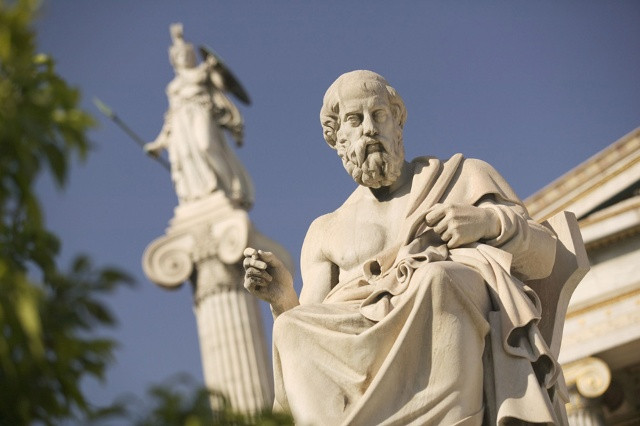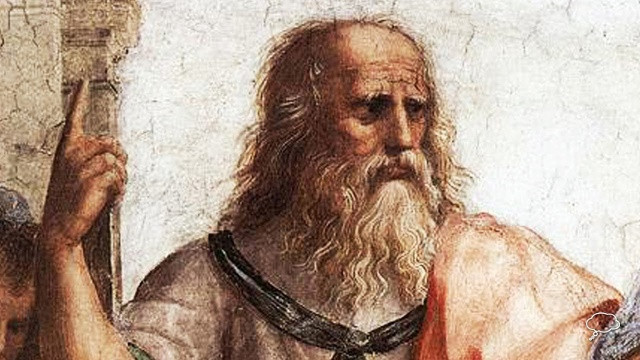The teacher who founded the first school in human history
Plato - an ancient Greek philosopher - was the founder of the Academy, which is considered the first school in human history. He also wrote philosophical works that greatly influenced Western ideology.
Born around 428 BC, the philosopher Plato was a student of Socrates and a teacher of Aristotle. His works include topics such as justice, beauty, and equality, as well as discussions of aesthetics, political philosophy, theology, cosmology, epistemology, and the philosophy of language.
Plato founded the Academy in Athens - one of the first schools in the Western world. He died in Athens around 348 BC.
 |
Much of the information about Plato's life comes from his own works and those of his contemporaries and classical historians. Both his parents were from the Greek aristocracy.
Like many boys of his class, Plato was probably educated by the best teachers in Athens. His father died when he was young, and his mother remarried her uncle Pyrilampes – a Greek politician and ambassador to Persia.
Plato is believed to have had two brothers, a sister, and a half-brother, although it is unclear which of these siblings he was. Plato's family members often appear in his dialogues, which historians believe is a sign that he was proud of his family lineage.
As a young man, Plato experienced two major events in his life. One was his encounter with the great philosopher Socrates. Socrates' method of dialogue and debate so impressed Plato that he soon became a close associate and devoted his life to the problems of virtue and the formation of noble character.
Another important event in his life was the Peloponnesian War between Athens and Sparta, which Plato fought briefly from 409–404 BC. The defeat of Athens ended democracy and Sparta replaced it with a tyrannical regime. Two of Plato's relatives, Charmides and Critias, were prominent figures in the new government.
After the overthrow of the dictatorship and the restoration of democracy, Plato briefly engaged in political work. However, the death sentence of his teacher Socrates in 399 BC made him hesitate in this work and returned to a life of study and philosophy.
After the death of Socrates, Plato traveled for 12 years through the Mediterranean, studying mathematics with the Pythagorean disciples in Italy and geometry, geology, astronomy, and religion in Egypt. During this time, or shortly after, he began writing many works. There is some debate among scholars about the order of the works, but most believe they fall into three distinct periods.
Early, middle and late stages
The first period is the period during Plato’s travels (399-387 BC). The Apology of Socrates was likely written shortly after Socrates’ death. Other texts from this period include the Protagoras, Euthyphro, Hippias Major, Minor, and Ion. In these dialogues, Plato attempts to convey Socrates’ philosophy and teachings.
In the middle period, Plato wrote in his own voice about the central ideals of justice, courage, wisdom, and moderation of individuals and society. The Republic was written during this time with its exploration of government ruled by philosopher kings.
In the final phase, Socrates is relegated to a supporting role and Plato takes a closer look at his early metaphysical ideas. He explores the role of the arts, including dance, music, drama, and architecture, along with ethics and morality. In his writings on the Theory of Forms, Plato argues that the world of ideas is the only constant, and that the world perceived through our senses is false and subject to change.
Academy Founding
Around 385 BC, Plato founded a school called the Academy, which he presided over until his death.
 |
The Academy operated until 529 AD, when it was closed by Roman Emperor Justinian I – who feared that the school was a source of paganism and a threat to Christianity.
During its years of operation, the school's curriculum included astronomy, biology, mathematics, political theory, and philosophy. Plato hoped that the Academy would be a place where future leaders would discover how to build better government for the Greek city-states.
In 367 BC, Plato was invited by his friend and disciple Dion to become the private tutor of his nephew, Dionysius II, the new ruler of Syracuse (Sicily). Dion believed that Dionysius showed potential to be an ideal leader. Plato accepted the invitation in the hope that his experiences would produce a philosopher king.
However, Dionysius did not live up to his teacher's expectations. He suspected Dion, and later Plato, of plotting against him. Dionysius exiled Dion and placed Plato under "house arrest." Plato eventually returned to Athens and his Academy.
One of his most brilliant students was Aristotle, who took his teacher's teachings in new directions.
The last years of life
Plato spent his final years at the Academy. The circumstances surrounding his death remain unclear, although it is certain that he died in Athens around 348 BC, at the age of over 80. Some scholars believe that he died while attending a wedding, while others believe that he died peacefully in his sleep.
Plato had a lasting influence on philosophy and human nature that extended far beyond ancient Greece. His belief in the importance of mathematics in education has been shown to be essential for understanding the universe as a whole. His writings on the use of reason to develop a more just society, focusing on the equality of individuals, established a foundation for modern democracy.
The Academy operated until 529 AD, when it was closed by the Roman Emperor Justinian I – who feared that the school was a source of paganism and a threat to Christianity.
During its years of operation, the school's curriculum included astronomy, biology, mathematics, political theory, and philosophy. Plato hoped that the Academy would be a place where future leaders would discover how to build better government for the Greek city-states.
In 367 BC, Plato was invited by his friend and disciple Dion to become the private tutor of his nephew, Dionysius II, the new ruler of Syracuse (Sicily). Dion believed that Dionysius showed potential to be an ideal leader. Plato accepted the invitation in the hope that his experiences would produce a philosopher king.
However, Dionysius did not live up to his teacher's expectations. He suspected Dion, and later Plato, of plotting against him. Dionysius exiled Dion and placed Plato under "house arrest." Plato eventually returned to Athens and his Academy.
One of his most brilliant students was Aristotle, who took his teacher's teachings in new directions.
The last years of life
Plato spent his final years at the Academy. The circumstances surrounding his death remain unclear, although it is certain that he died in Athens around 348 BC, at the age of over 80. Some scholars believe that he died while attending a wedding, while others believe that he died peacefully in his sleep.
Plato had a lasting influence on philosophy and human nature that extended far beyond ancient Greece. His belief in the importance of mathematics in education has been shown to be essential for understanding the universe as a whole. His writings on the use of reason to develop a more just society, focusing on the equality of individuals, established a foundation for modern democracy.
According to VNN
| RELATED NEWS |
|---|

